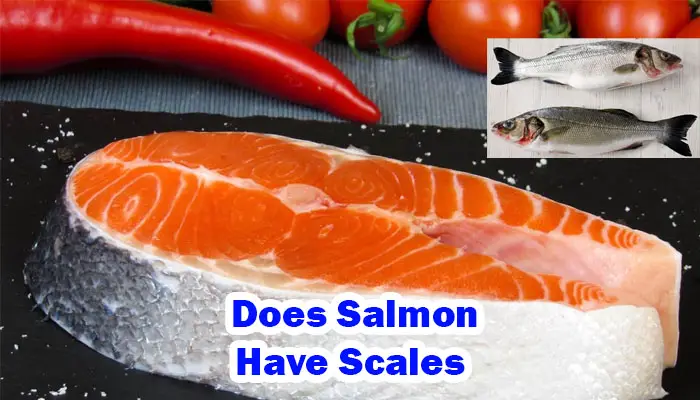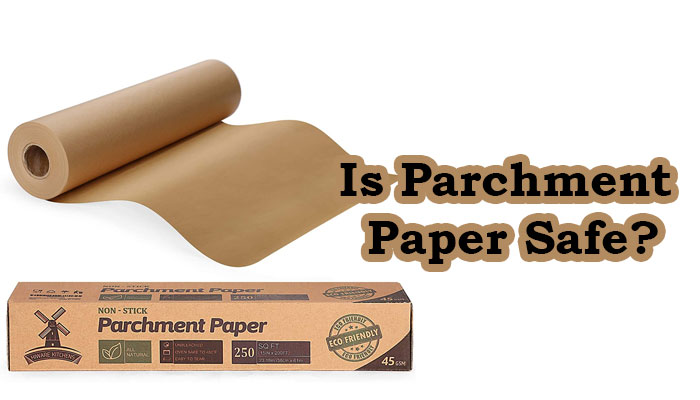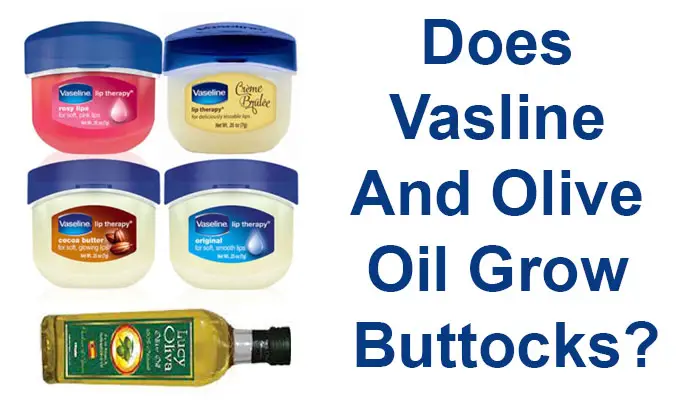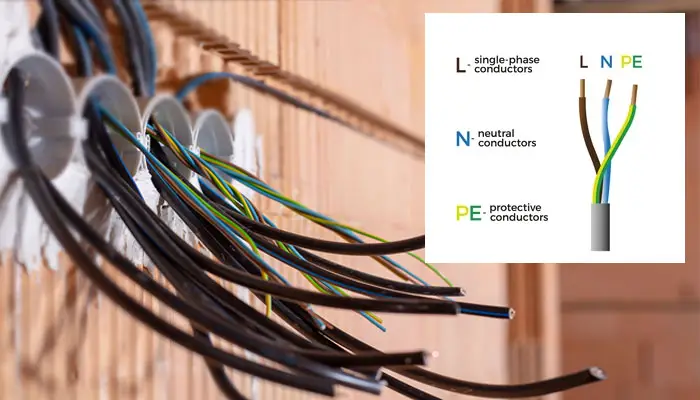Can Dogs Eat Corn Nuts? (Merits and Demerits of Corn Feeding)
- By Infoik
- 15 Dec, 2021
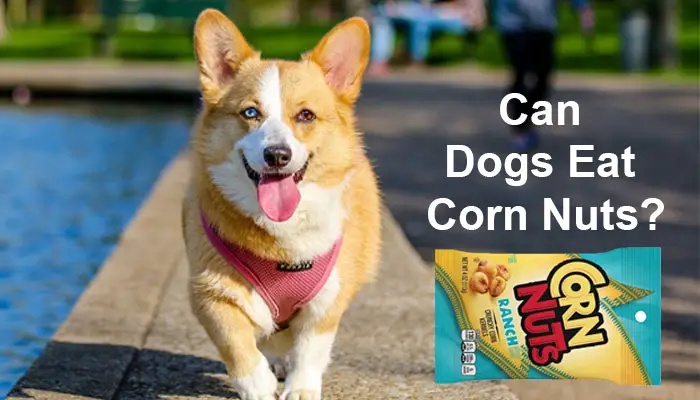
Can Dogs Eat Corn Nuts? Corn For Your Pets
Corn nuts are a type of food made from deep-fried corn kernels. They come in different flavors and can serve as an excellent snack, depending on what you give them to eat! Corn Nuts have plenty of vitamins for our dogs, so they’re not just junk; however, we need to be careful when giving this many processed ingredients because it doesn’t contain any valuable nutrients, which might lead to trouble.
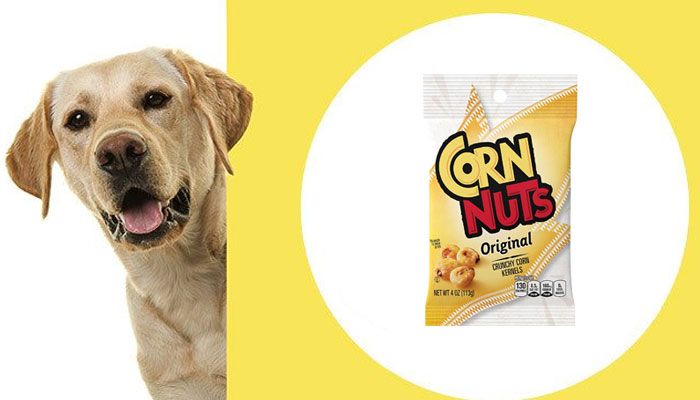
Don’t worry if your dog comes into contact with corn nuts and has them. Ensure the quantity is less as vast quantities of ingested Corn can cause dehydration and other issues! Also, dogs get sick if they are offered something different from their diet routine- avoid this at all costs, though, because it will make them very uncomfortable or even die.
Like other legumes and soy products, corn nuts can be high in sodium for dogs. There are a couple of reasons. The main reason why these should not make up a large part of your dog’s diet is that they have way too much salt content!
These nuggets might look tempting as well with their peanut butter-like scent that will surely entice any pup towards them. Still, you need to know what goes into those little packages before giving them away or feeding them directly from one vessel after another; even if each item looks appetizing on its merit.
3 tips for Feeding Your Dog Corn Nuts
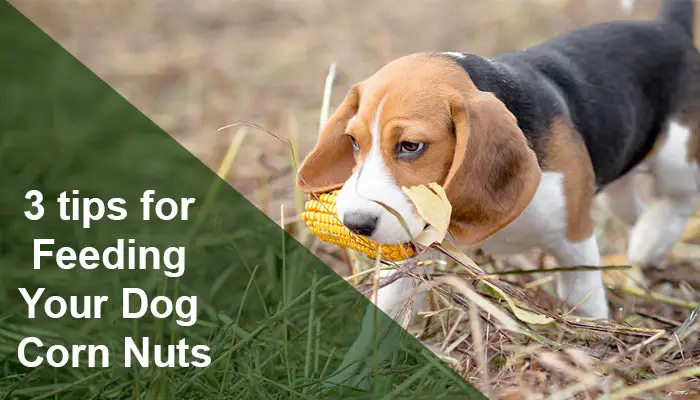
Corn nuts are not a recommended snack for your dog. They can be toxic, and there are too many concerns when feeding them, like hidden flavoring ingredients or how unhealthy fried corn nuggets might be!
While the just-corn form of Corn Nuts may seem innocent enough at first glance (they contain no meat), this treat has been linked to several problems in dogs, including upset stomachs and even death from gastric torsion.
1. Lack of Nutritional Value
Corn nuts are essentially fried corn kernels, which lack nutritional value and provide empty calories. They may be a craving for some dogs. Still, in terms of delivering healthy nutrients, these snacks should not exist at all when it comes down to what is best suited as part of your pup’s diet; however, they also hold other opposing sides, such as being high on unhealthy fats like butter or lard from heavily processed ingredients that can lead onto diabetes developing later-on depending how often you feed them over time, etc.
2. High Salt Content
Corn nuts are a delicious snack for dogs. But, like any other food item, it can be unhealthy if not prepared correctly with the right ingredients and proportions to prevent adverse effects on your pup’s health, such as high blood pressure or heart disease from consuming too many salty items that will dehydrate him during hot weather conditions without providing much energy due to their low nutrient density per weight ratio compared with meat sources of comparable fat content.
3. Flavorings
Dogs love to munch on corn nuts, but did you know that some of the seasonings added during cooking can be harmful? For example, garlic and onion are common ingredients in many snack flavors for dogs. Hence, if your pup likes them as much as we do, then think twice before giving him one of these snacks containing those potentially toxic substances!
What occurs if your dog eats corn nuts?
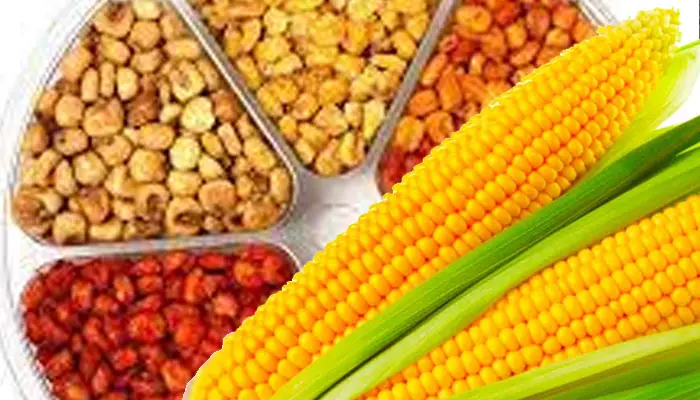
The number of corn nuts consumed by dogs can affect their health. If your pup has eaten fewer amounts, then there is nothing to worry about, and they will adjust eventually; however, if he had more than usual, it might cause adverse effects like upset stomach or diarrhea, which are very common in pets after consuming these types food items that don’t fit into our daily routines as much because we know what happens when you give them too many treats for dogs!
If you are not sure whether or what type of nut your dog is allergic to, it’s best to stay away. Even if they have never had an issue with Corn before and seem healthy now – something could change in time! However, do take them straight away so that the vet can make a proper diagnosis; this will help avoid any complications from occurring later on down the line, which may prove difficult to control without intervention such as epinephrine injections every hour at least.
You Can Also Read These Articles:
- Can Dogs Eat Turkey Bacon? Is It OK For Dogs Or Not?
- Can Cats Eat Doritos? Good Or Bad Explained!
- Can Squirrels Eat Chocolate? Wildlife Feeding Guide For 2022
- Can Guinea Pigs Eat Blueberries? (Benefits, Risks & Serving Size)
FAQ:
Are chicken feet okay for dogs?
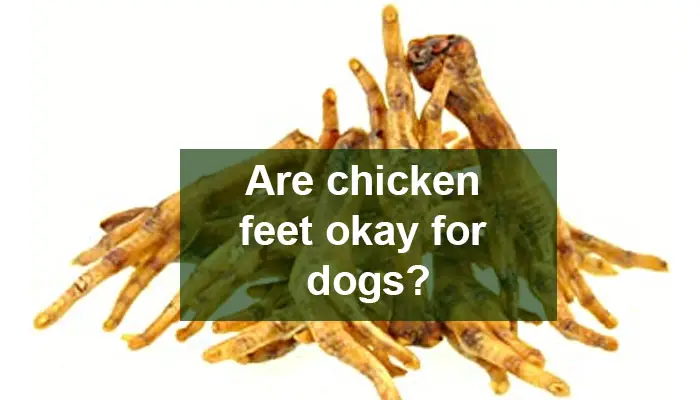
Yes, chicken feet are a nutritious addition to your dog’s Balanced diet. They provide them with protein and carbohydrates while also giving you some good nutrients like linoleic acid or antioxidants that help prevent cancerous cells from forming!
What are the Nutritional benefits of corn nuts?
Corn nuts can be an excellent snack for those looking to add some extra protein and iron. They also provide quick energy, which is perfect before or during workouts!
Can Corn upset a dog’s stomach?
The cob in your dog’s food may be dangerous. If you suspect he ate one, watch for signs that would indicate distress such as vomiting or attempting to vomit; an inability of the affected animal-catcher (or owner) to put up with pain when going upon any necessary activity like excretion, etc., loss of interest from activities usually enjoyed by them including playtime, stomach issues.
Why should dogs not eat Corn?
If you’re walking your dog and they pick up a chip, don’t be surprised if they eat it. Dogs can likely break down food more efficiently than humans because of their superpower: a more comprehensive digestive system with enzymes to help digest our meals (and help us get rid of pesky corn cob). Dogs should not eat too much Corn, because it can make the stomach upset, start diarrhea, dehydration, and even worse situation.
Can dogs eat sweet Corn from a tin?
Dogs would benefit from eating canned Corn because it is low in calories and high in fiber, which can help with digestion. However, the problem lies within its sodium content; this makes dogs more susceptible to becoming dehydrated or developing salt-poisoning symptoms if they regularly eat foods higher on the scale than what’s normal for them.
Will Corn make a dog poop?
Dogs can digest some corn in their foods because it has soluble fiber. However, the hard shell around this type of ingredient is what makes it difficult for them, so your puppy will find himself with an accumulation after chowing down on treats containing whole kernels from the table!
Is Corn bad for dogs?
Is it wrong for dogs to eat Corn? Corn is one of the most popular cereal grains globally and may contain a good amount of several vitamins, minerals depending on which type we’re talking about. One thing you should be careful with when feeding your pup, who loves snacking on stuff like this, your pups should not eat corns in large quantities.
Can Dogs Eat Corn?
The Corn in dog food meets several vital nutritional needs that dogs have, including Protein- The corn gluten meal we use functions as an essential source of protein and amino acids which help maintain healthy muscles, skin & hair.
Can Dogs Eat Corn Nuts?
We all know and love corn nuts as a snack food, but they’re also called crackers or toasted Corn. They come from deep-fried or oven-cooked ears of golden brown USA soil farmers who want nothing more than for their crops to grow faster so that you can have this delicious treat on your plate too!
Are corn nuts healthier than chips?
If you’re looking for a crunchy, salty snack that’s not fried, then corn nuts might be the perfect pick. A one-ounce portion has 120 calories and 4.5 grams (or 50%) fat but only 21 carbs with 2 g fibers, whereas potato chips have three times as much saturated fats at 180 mg per serving!
What is an excellent source of protein for a dog?
When it comes to which meat is best for your dog, you’ll find that lamb and chicken provide more digestible forms of protein than beef. However, if quality matters most, look no further; high-quality foods will list these meats first on their ingredients label—lamb or maybe even some bird feathers!
Is there any real health benefit to feeding Corn to my dogs?
Thankfully, many vitamins and minerals can be found in Corn. One such vitamin is Antioxidants- Corn which helps support a healthy immune system and antioxidant production from the body’s cells! It also contains fiber to help gut health and beta carotene to keep eyesight tight. So, there are lots of health benefits for dogs.
Final Verdict:
Many dog owners feel that corn nuts are suitable for their digestion. They say the fiber in them can improve a pup’s ability to digest, but this belief has no basis and is simply food superstition at its finest! Corn isn’t rich in fibers; other items contain more than just grains like fruits or vegetables, which could be fed as treats instead of using it solely on an otherwise healthy pet-person relationship upkeep schedule. But it is to keep in mind that corn nuts can create several problems if fed frequently.


